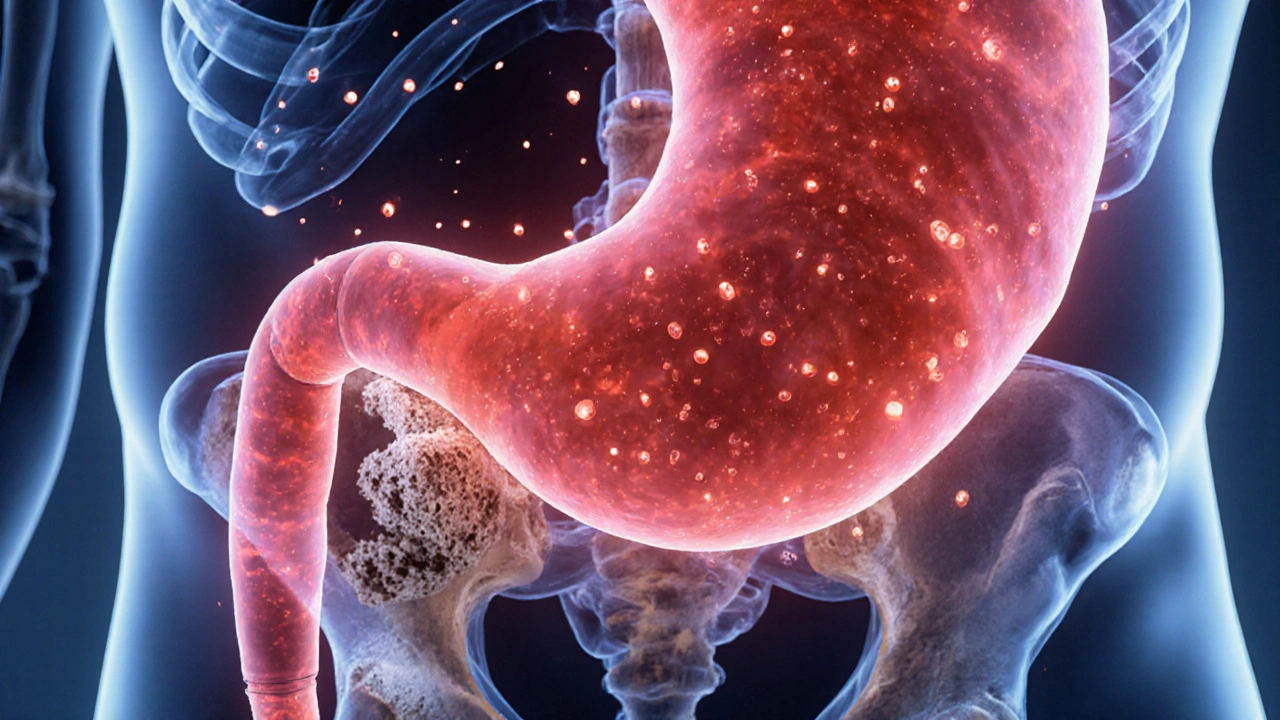Bone Density: A Practical Guide to Stronger Bones
When talking about Bone Density, the amount of mineral content packed into each cubic centimeter of bone. Also known as bone mineral density, it tells you how strong or fragile your skeleton is and guides doctors in preventing fractures.
One of the biggest risks linked to low bone density is Osteoporosis, a disease where bones become porous and break easily. Doctors often check bone health with a DEXA Scan, a low‑dose X‑ray that measures bone mineral density across the spine and hip. The scan provides a numeric score that helps decide whether treatment is needed.
Nutrition plays a crucial role. Calcium Supplements, tablet or powder forms of calcium carbonate or citrate boost the mineral supply your bones crave. Pair that with Vitamin D, the fat‑soluble vitamin that improves calcium absorption in the gut, and you create the perfect environment for bone rebuilding.
Key Factors that Shape Bone Density
Age is a natural driver; after your 30s, bone turnover tips toward loss faster than gain. Hormones matter too—estrogen in women and testosterone in men protect bone tissue. Lifestyle choices such as regular weight‑bearing exercise (think walking, jogging, resistance training) stimulate bone formation, while smoking and excessive alcohol speed up degradation.
Medications can either help or hurt. Long‑term use of corticosteroids, for example, can shave off bone density, while bisphosphonates work to slow loss. Understanding these drug effects lets you and your doctor balance benefits against risks.
Genetics also set a baseline. If close relatives have suffered fractures or have osteoporosis, you’re more likely to see lower bone density early. That’s why early screening, especially for post‑menopausal women and older men, is a smart move.
Diet isn’t just calcium and vitamin D. Magnesium, vitamin K2, and protein all contribute to the bone matrix. A balanced plate with leafy greens, nuts, dairy or fortified alternatives, and lean meats covers most of these needs.
Sleep and stress matter too. Growth hormone peaks during deep sleep, supporting bone repair. Chronic stress raises cortisol, which can undermine bone density over time.
When you combine these pieces—age, hormones, activity, nutrition, meds, genetics, and lifestyle—you get a full picture of what influences bone strength. Each factor interacts, so improving one area can offset weaknesses in another.
Below you’ll find a curated set of articles that dive deeper into each of these topics, from medication comparisons to practical tips for boosting calcium intake. Use them to build a personalized plan that keeps your bones resilient for years to come.

Zollinger-Ellison Syndrome and Osteoporosis Risk: What You Need to Know
- Oct, 12 2025
- Daniel Remedios
- 16 Comments
Learn how Zollinger-Ellison syndrome raises osteoporosis risk, how to spot early bone loss, and practical steps to protect your skeleton while managing acid issues.
